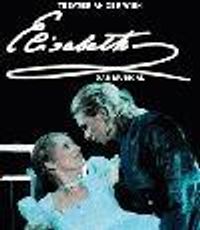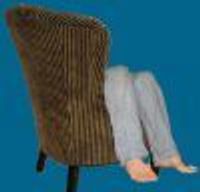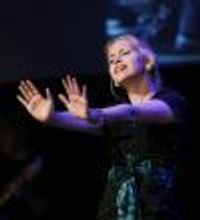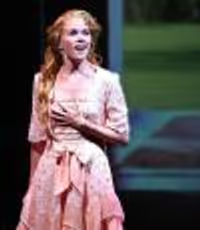Andrew lloyd webber ?
bwaylvsong
Broadway Legend Joined: 7/28/05
#50re: Andrew lloyd webber ?
Posted: 7/19/07 at 10:34pmI don't think ALW "doesn't know how to write for the voice". I think he purposely writes challenging music that only trained professionals can sing, and therefore "wow" the average theatregoer with their amazing vocal ability, making up in yet another way for weak lyrics/book/etc.
#51re: Andrew lloyd webber ?
Posted: 7/19/07 at 11:03pmAlso, he writes for the voices of the characters themselves. In PHANTOM, Christine is an operatic soprano . . . hence the really high notes. In JCS, it is done in a 70's rock style, so the male voices are written for 70's rock tenors. In Evita, she is bigger than life and very authoritative, so the music is written to emphasize that. Unlike Wildhorn, I think ALW writes more for the character and not for joe blow to sing it at their talent show.
SporkGoddess
Broadway Legend Joined: 7/27/05
#52re: Andrew lloyd webber ?
Posted: 7/19/07 at 11:14pm
Well, first off, operatic soprano doesn't equate singing at the top of the range. You can be a soprano and only be able to sing up to D6. And I can't think of any opera aria that makes you sustain an A5, a B5, a few C6's, and then an E6. That's just ridiculous. Like I said, there's a reason that many singers have to prerecord it.
#53re: Andrew lloyd webber ?
Posted: 7/20/07 at 12:35am
Oh my goodness, in reply to something lickthelightbulb said:
"I think the thing with ALW is he's so much more opera, so much less musical theatre, or atleast, what we call it. He doesn't have really very many upbeat songs, or atleast ones that are happy. Happy/upbeat... ah, w/e.
I think the problem with the songs everyone's mentioned is they're girl songs. ALW probably didn't know exactly how difficult it was for someone to sing because he couldn't do it himself."
- - - I'm not quite sure how to reply to most of this, if I did it would just sound kind of rude...But...Do you realize how many composers in previous centuries who have given us some of the most gorgeous and profound operas, oratorio's, etc., couldn't sing themselves? A lot of those who write music today, who you would say "can write for a singer," can't sing themselves. That's why they write! Now that being said, some composers can sing, but you don't have to be able to sing to understand how to write for a singer, you just need to understand music, the voice, and all of their technicalities.
It is true that a lot of Webber's male material tends to reach both for the lower and higher ends of the male register in one piece, but that doesn't make it bad or "not for the singer," it just makes it a bit difficult. I know basses in opera chorus' around the world that are able to seamlessly bridge through their lower, natural, register into a gorgeous countertenor, and you will never hear their break. It's just called training.
In reference to your thought that his shows are more like opera than other composers...What are ALL of Boublil & Schoenberg's shows? I call them more of an opera than a lot of Webber's pieces. Just because their shows sound more “pop” driven doesn’t mean they haven’t basically written an opera (p.s. ALW is largely pop driven). By the way, you should pick up Evita, Joseph and the Amazing Technicolor Dreamcoat, Jesus Christ Superstar, and several others of his, and then come tell me if he doesn't write enough "upbeat" songs. It totally depends on what your definition of "upbeat" is, and believe me, it probably isn’t what you are thinking.
This is to bwaylvsong’s comment:
“I think he purposely writes challenging music that only trained professionals can sing, and therefore "wow" the average theatregoer with their amazing vocal ability, making up in yet another way for weak lyrics/book/etc.”
- - - SO WHAT if he does write music that a trained singer would fare better with! God forbid that singers in the opera world, the musical theatre world, or any musical field are properly trained enough to sing difficult music under a difficult schedule. What is the problem with writing a piece of music that is difficult to sing? He isn’t writing it “purposely” to be difficult, he’s probably just writing a melody that he hears at some random point in time and decides to score it. I don’t think Andrew Lloyd Webber is trying to make his music far better than the book and lyrics to hide the fact that they are sub-par, could it just be that the book and lyrics just aren’t as good or as intellectual as his music? I’m sure when he is working on a new show that he has every expectation that one piece of the overall puzzle with be just as good as the other; though it doesn’t always end up that way. What you’ve basically said is: He writes bad music and then realizes that the book and lyrics are weak, and then he beefs up the score hoping to hide that fact? I seriously doubt that! If you have such a problem with his music being too challenging then don’t sing it or coach some more and it’ll get easier!
- - - This whole post doesn't apply to just Webber, it applies to others that these same people comment on, with the same comments each time. So much of this is relative, and I hear the same argument for almost every composer that is discussed on this board.
TOOTLES!
bwaylvsong
Broadway Legend Joined: 7/28/05
#54re: Andrew lloyd webber ?
Posted: 7/20/07 at 9:46amMy comment was meant to be a compliment. I never said he writes "bad" music- I love his work! Of course he writes what he hears in his head, like every other composer. I will admit that he sometimes tends to choose the wrong collaborators, and DOES have to make up for it, with his wonderful music. I like the fact that his music is difficult to sing, and gives the trained singer an advantage over an average joe. I personally have no "problem" with his music and enjoy singing it. I'm sorry you interpreted my post so differently from its intention.
#55re: Andrew lloyd webber ?
Posted: 10/30/07 at 12:44pm

There is a very funny video which is a faux obituary for ALW. In it, the brilliant editor plays several snippets of famous classical tunes, and then the corresponding ALW hybrid of that tune from a particular musical.
Enjoy the video, and snippets of my own experience of his aural plagerisms.
Hector Berlioz or Andrew Lloyd Webber? You Decide
www.maninchair.com
#56re: Andrew lloyd webber ?
Posted: 10/30/07 at 1:50pmMy God, that was hilarious.
-Nellie McKay on the 2006 Broadway production of The Threepenny Opera, in which she played Polly Peachum
Timmer
Broadway Star Joined: 2/21/06
#57re: Andrew lloyd webber ?
Posted: 10/30/07 at 2:49pm
"Stephen Sondeim's said that he's cautious not to write something he's already written."
And yet so many of his songs sound like they're desperately trying to be "Another Hundred People."
Timmer
Broadway Star Joined: 2/21/06
#58re: Andrew lloyd webber ?
Posted: 10/30/07 at 3:02pm
"Some claim that ALW just rips off Puccini."
As T.S. Eliot wrote, "Bad poets imitate; good poets steal." He may sound very much like Puccini, he may even use a little of it, but he takles it and makes it his own by putting his own spin on it. Exactly what Eliot was talkign about.
#59re: Andrew lloyd webber ?
Posted: 10/30/07 at 3:28pm
I'm a big fan of most of his works, and well I believe it is true that he uses melodies from other shows into his new ones. You can hear some minor notes from EVITA in Cats, and from Cats in Phantom of the Opera, and Phantom of the Opera in Sunset Boulevard, and Sunset Boulevard in The Woman in White.
And, well it's been claimed that he ripped the song melody of "Superstar" off from How to Succeed In Business without Really Trying, the songs "RoseMary," which if you give a listen it does sound very similar, and what's worse is that the song "RoseMary" would have only been 10 years old at the time.
But I think it all sounds good, so why not "recycle" the good melodies?
chinto1984
Leading Actor Joined: 8/6/07
#60re: Andrew lloyd webber ?
Posted: 10/30/07 at 8:02pmThe fact that much of his music sounds very similar to other composers just adds some fuel to the fire. Like Sondheim, Kander and Ebb, and other successful composers, they develop a style. ALW has done a lot for musical theatre. Evita is one of the best musicals. He has created some great songs and hit shows. After Phantom, his music and the European style of musicals seemed to dominate theatres. That style can get boring and repetitive and too melodramatic. Some of the backlash towards ALW comes from the antiBrit musical. ALW unlike Sondheim, I hate to compare, is very aware of commercial success. I do believe he considers that a lot more in the creation of a show at timew more than Sondheim does.
Videos





